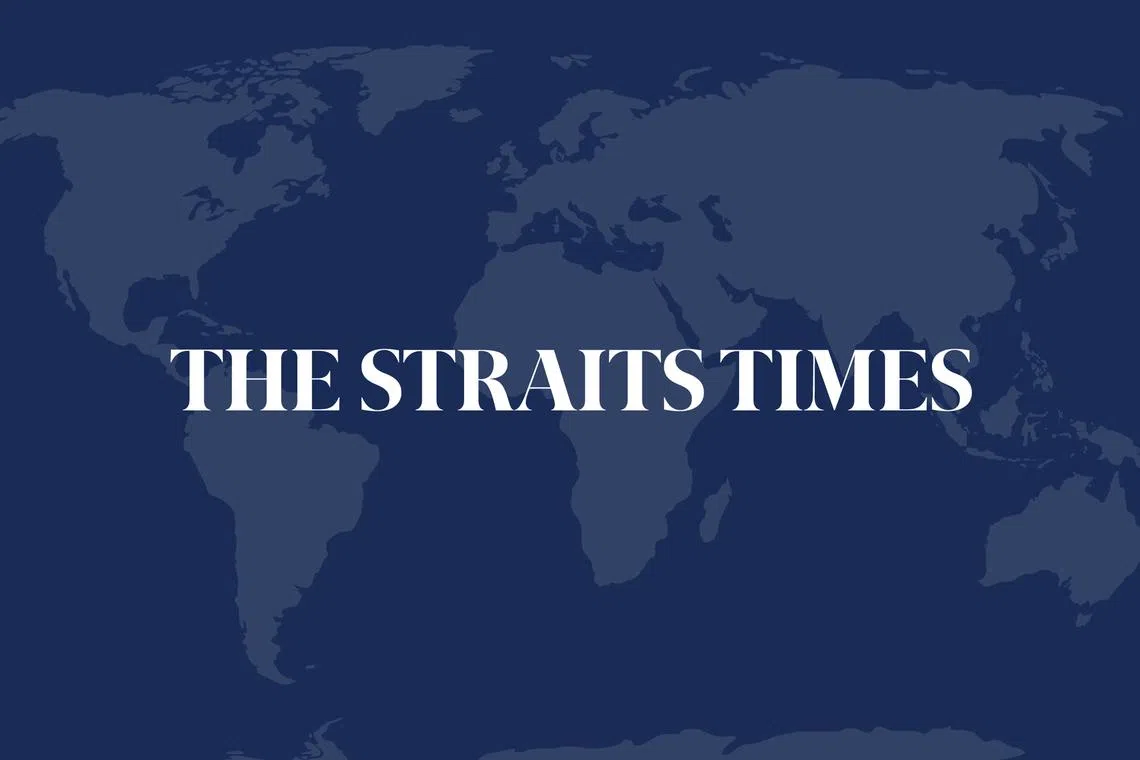China on ‘high alert’ after Japan warship sails through Taiwan Strait
Sign up now: Get insights on Asia's fast-moving developments

TOKYO - China’s military was on “high alert” on Sept 26 and Beijing said it had lodged a complaint with Tokyo after a Japanese warship sailed through the Taiwan Strait.
Japan’s top government spokesman Yoshimasa Hayashi declined to comment on the reports at a regular briefing because they concern military operations.
But Beijing confirmed its military had responded to “the activities of a Japanese Self-Defence Force ship entering the Taiwan Strait”.
“China is highly vigilant about the political intentions of Japan’s actions and has lodged stern representations with Japan,” Foreign Ministry spokesman Lin Jian said.
The United States and its allies are increasingly crossing the 180km Taiwan Strait to reinforce its status as an international waterway, angering China.
The Sazanami destroyer made the unprecedented passage on Sept 25, several Japanese media outlets said.
Military vessels from New Zealand and Australia also sailed through the fiercely contested waterway on the same day, Wellington’s Defence Ministry said on Sept 26.
A defence official told Agence France-Presse that one of its ships made its first passage through the Taiwan Strait in seven years, alongside an Australian guided missile destroyer, to assert the “right of freedom of navigation”. The official added that the mission was not conducted with Japan.
The Japanese media said the three nations planned to conduct military drills in the contested South China Sea.
China’s Defence Ministry also confirmed on Sept 26 that vessels from the three countries “had a transit operation through the Taiwan Strait”.
The Chinese military “stayed on high alert and monitored these passages”, spokesman Zhang Xiaogang said.
“These operations will undermine China’s sovereignty and security,” he said.
“The (Chinese military) will remain on high alert and take all necessary measures to counter these threats and provocations,” he added.
‘Threaten’ China
In response to the “foreign warships transiting the Taiwan Strait”, Beijing on Sept 26 said it “consistently handles such matters in accordance with laws and regulations”.
The Foreign Ministry said it remained “highly vigilant against any actions that may threaten China’s sovereignty and security”.
Last week, China’s Liaoning aircraft carrier sailed between two Japanese islands near Taiwan for the first time, accompanied by two destroyers.
The ships entered Japan’s contiguous zone – an area up to 24 nautical miles from the country’s coast – Tokyo said, calling the incident “totally unacceptable”. China said it had complied with international law.
The incident followed the first confirmed incursion into Japanese airspace
The Yomiuri Shimbun daily cited unnamed government sources as saying that Japanese Prime Minister Fumio Kishida had ordered the Sept 25 Taiwan Strait journey over concern that doing nothing following China’s intrusions could encourage Beijing to take more assertive actions.
‘Serious concern’
Beijing, which says democratic Taiwan is part of its territory, claims jurisdiction over the body of water that separates the island from China.
But the US and many other countries argue their voyages through the strait are routine, citing freedom of navigation.
China earlier in September accused Berlin of heightening security risks
On Sept 25, China test-launched an intercontinental ballistic missile into the Pacific Ocean in its first such exercise in decades.
Japan said it had not been given advance notice of the test, with Mr Hayashi expressing “serious concern” about China’s military build-up in comments he reiterated on Sept 26.
“China’s military intrusion into our territorial airspace and other incidents have been happening one after another in a short period of time,” Mr Hayashi said.
Japan will do its “utmost in patrolling and monitoring” the situation, he added.
Taiwan’s Defence Ministry said on Sept 26 that 43 Chinese military aircraft and eight naval vessels were detected around the island within a 24-hour period.
Beijing has said it will never renounce the use of force to bring Taiwan under its control, with Chinese President Xi Jinping in recent years upping the rhetoric of “unification” being “inevitable”.
Dr Bec Strating, professor of international relations at La Trobe University, said Japan’s reported Taiwan Strait transit “is part of a broader pattern of greater naval presence by countries in and beyond Asia that are concerned about China’s maritime assertions”.
“Japan, in particular, has been dealing with China’s ‘grey zone’ tactics in the East China Sea”, including an increasing number of coast guard vessels sailing close to disputed islands, she told AFP.
Grey-zone tactics are actions that serve to exhaust a country’s armed forces, military experts say. AFP


